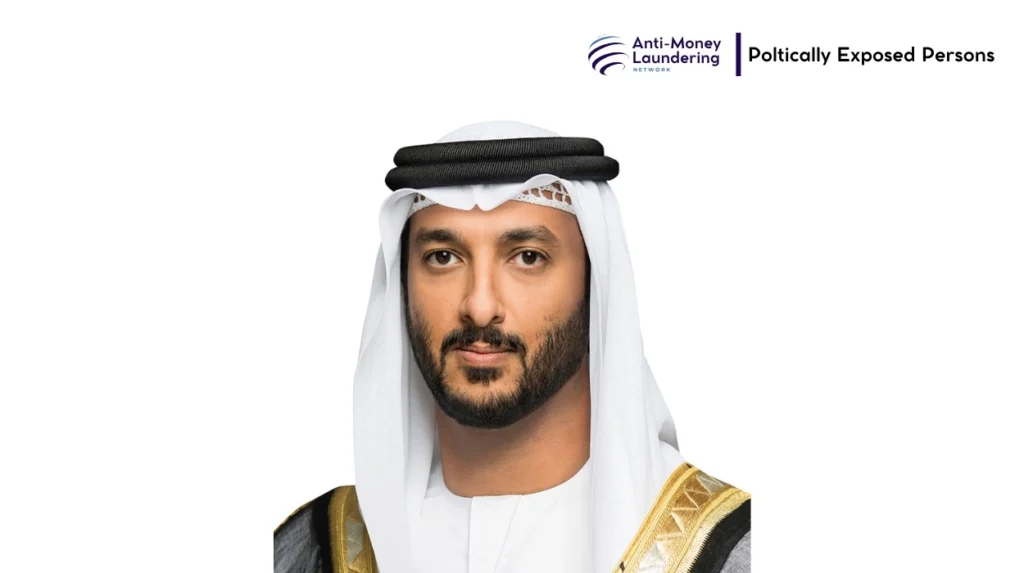Abdulla bin Touq Al Marri is an influential Emirati politician serving as the Minister of Economy and Tourism of the United Arab Emirates since July 2020. Recognized for his strategic role in transforming the UAE’s economic landscape, Al Marri has been pivotal in diversifying the country’s economy beyond oil dependence. His influence permeates various sectors, including trade, investment, aviation, and economic regulation, making him a central figure in modern UAE governance. As a senior official, his leadership reflects a modern vision aligned with global economic trends and sustainable development.
Early Life and Background
Born in 1982, Abdulla bin Touq Al Marri grew up in the United Arab Emirates, where he holds citizenship and nationality. His place of birth aligns with the UAE’s dynamic urban hubs that have witnessed rapid economic expansion and cultural development. His early academic pursuits led him to the United Kingdom, where he earned a bachelor’s degree in Civil Engineering from the University of Sheffield in 2005. This technical foundation was supplemented by advanced leadership training at the UAE Government Leaders Program and the Mohammed Bin Rashid Center for Leadership Development, preparing him for high-level public administration.
Personal Life
Details about Abdulla bin Touq Al Marri’s family remain mostly private, in keeping with Emirati cultural norms that prioritize discretion in private matters. Information about his spouse and children is not publicly available, highlighting a separation between his professional responsibilities and personal life. The Al Marri family is part of the broader social fabric in the UAE, known for its tribal and community-oriented values. While specific public details about his family are limited, the prominence of his position suggests a supportive personal environment conducive to his demanding governmental role.
Career and Achievements
Abdulla bin Touq Al Marri began his career in public service in 2007 within the Prime Minister’s Office, displaying commitment and competence that propelled him through various significant roles. He became Director General of the Executive Office under His Highness Sheikh Mohammed bin Rashid Al Maktoum, positioning him at the core of Dubai’s ambitious development projects and strategic initiatives.
As CEO of the Dubai Future Foundation, he championed the Dubai 10X initiative, which aimed to position Dubai as a global leader in innovation by transforming government services and creating futuristic urban solutions. His tenure as Secretary General of the UAE Cabinet from 2017 to 2020 involved enhancing coordination between federal and local government entities and implementing initiatives to gauge public sentiment and foster government transparency.
In 2020, following a governmental restructure, Al Marri was appointed Minister of Economy and Tourism. In this capacity, he spearheaded programs that sought to digitize the UAE’s economy and diversify investment into high-tech areas. His role also includes chairing important regulatory bodies such as the Securities and Commodities Authority and the General Civil Aviation Authority. Al Marri has played a key diplomatic role as well, participating in landmark events like the UAE’s normalization agreement with Israel in 2020, which opened new avenues for bilateral trade and economic collaboration.
Lifestyle, Wealth, and Assets
Public information regarding Abdulla bin Touq Al Marri’s net worth and personal wealth is not widely available. Maintaining privacy around personal finances is common among high-ranking officials in the UAE. Consequently, there are no verified reports of private residences, palatial estates, yachts, or other luxury assets linked directly to him. Nonetheless, his status as a senior government figure suggests access to significant resources and influence over economic institutions, though his personal lifestyle remains discreet.
Influence, Legacy, and Global Recognition
Abdulla bin Touq Al Marri’s impact is evident in the UAE’s economic evolution, notably through initiatives aimed at fostering innovation and sustainable growth. He has helped cement the country’s reputation as a global business hub that embraces technological advancement and diversified industries.
Through his leadership in the Ministry of Economy and Tourism, he has contributed to the strategic development of sectors critical to the country’s long-term vision, including investment facilitation and consumer protection. Al Marri’s work has garnered international attention, with his participation in global forums such as the World Economic Forum reflecting his commitment to fostering international economic cooperation.
His legacy includes not only domestic economic reforms but also enhancing the UAE’s diplomatic and trade ties worldwide, positioning the nation as a key player in global markets.
Financial Transparency and Global Accountability
As a Politically Exposed Person (PEP), Abdulla bin Touq Al Marri operates within a governance framework frequently criticized for limited transparency and potential elite shielding. Although there are no credible allegations or formal sanctions against him personally, the centralized nature of the UAE’s political system presents inherent challenges to accountability. The opacity of asset disclosure mechanisms and regulatory oversight can limit the detection and prevention of conflicts of interest or misuse of official power.
Given his broad powers over economic policy and regulatory agencies, ongoing vigilance is necessary to ensure that governance maintains integrity and promotes financial transparency. The UAE’s international role as a financial and trade hub elevates the importance of global accountability standards with respect to officials in Al Marri’s position.
Abdulla bin Touq Al Marri’s journey from a civil engineer to a key architect of the UAE’s economic policy exemplifies a blend of expertise, strategic vision, and leadership within a complex political landscape. His career demonstrates an ability to navigate evolving economic paradigms and contribute substantially to the UAE’s modernization efforts.
Despite the limited public knowledge about his personal wealth and family, his professional accomplishments and influence in shaping national and global economic agendas are significant. However, the broader systemic context of governance in which he operates calls for continuous emphasis on transparency, oversight, and ethical standards to ensure sustainable progress and trust in public institutions.

